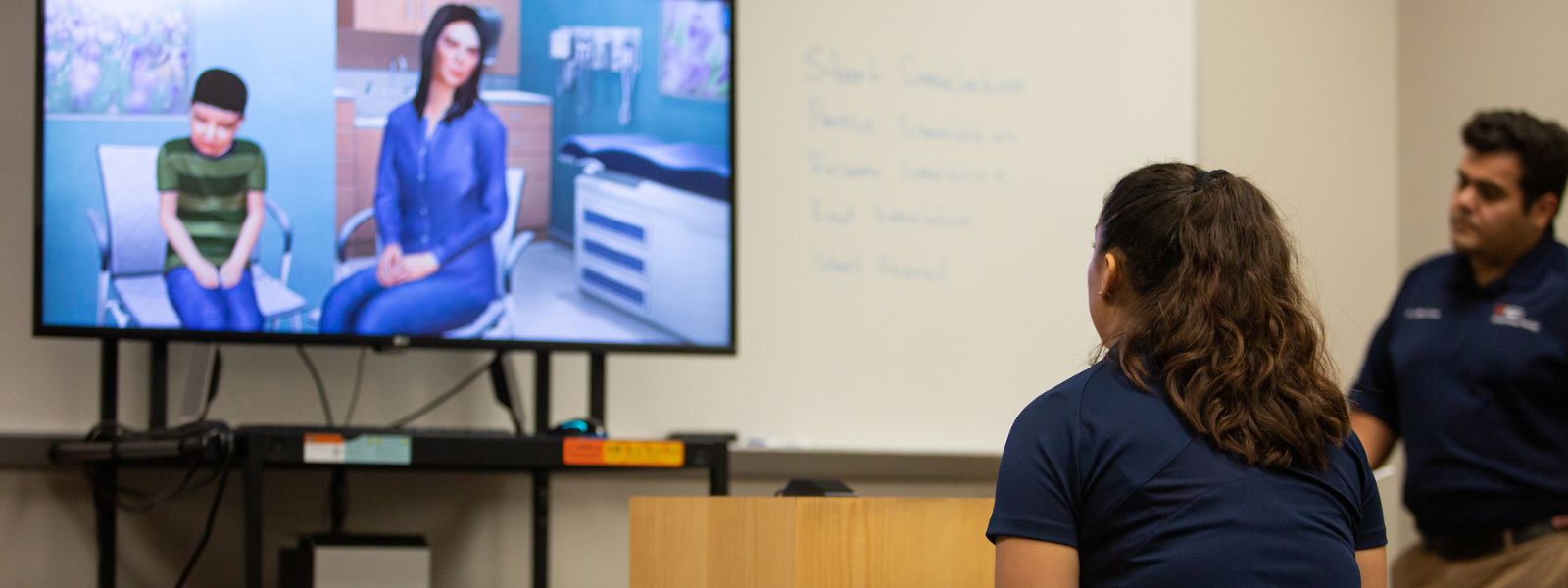Mission & Vision
Program Vision
The entry-level Doctor of Occupational Therapy Program at UTRGV will transform the health and well-being of South Texas and beyond through innovation, professionalism, leadership, and alliance with others.
Program Mission
It is the mission of the UTRGV entry-level OTD program to prepare highly qualified entry-level occupational therapists to support the health and well-being needs of the South Texas region and beyond. The program is grounded in the belief that humans are complex beings and that, through active engagement with the internal and external environments, individuals evolve, change, and adapt. Through exemplary education in research, service, clinical skills, ethical leadership, and interprofessional engagement, graduates will be grounded in the core values of occupational therapy, evidence-based practice, and active learning. Didactic and experiential learning will create reflective and holistic practitioners who understand the complexity of occupational engagement and systems across various settings, populations, and geography.
PhilosophyOccupational therapy education is grounded in the belief that humans are complex beings and that, through active engagement with the internal and external environments, individuals evolve, change and adapt. Four significant areas guide the UTRGV Department of Occupational Therapy's philosophy. These are:
- Provision of evidence-based therapy through occupation and translational research,
- Continuum of health care across the lifespan,
- Influence of culture on occupation and effective approach to health equity,
- Professional reasoning and occupational adaption, and
- Interprofessional engagement.
The individual is viewed as an occupational being throughout life and within the context of culture. To be true to the complexity of human beings, one must look at them as multidimensional systems integrating mind, body, and spirit, which are inherently healthy, and live on a continuum from wellness to disability. Occupation is essential to health and life itself. The health continuum of individuals within communities also shapes the community. Life transitions may be illness, disability, retirement, moving from school to work, disasters, or living through other life events. Focusing on the community's health issues, population, and groups within a community will lead to health and life satisfaction through engagement in occupation. Culture serves as a basis for health and illness perceptions and decision-making. Adaptation is fundamental to a culture's survival, and transformation through occupation is essential to an individual's survival. Occupational choice is greatly influenced by the cultural framework in which the individual lives. Although individuals are shaped by their socialized cultures, they can adapt to new and different cultures. The culture of individuals and communities is constantly blending, changing, and evolving to create unique and diverse environments for human beings to interact and engage in occupation. The interaction of culture and health lends credence to the theory that health is at least in part socially and culturally constructed (Wells, Black, & Gupta, J, 2016).
Occupational Therapy addresses the complexity of human occupation when satisfying occupational patterns have been disrupted. The therapist and client collaborate in setting goals that will bring meaning to that individual's everyday life and help establish meaningful occupations. Learning to manage daily tasks such as work, play and leisure are highly individual goals that require not only task completion but also remaking one's life following a transition. Beyond these critical beliefs is the understanding that the Doctor of Occupational Therapy program must assume responsibility for building advanced knowledge in the field, adopting technology to transform practice, and fostering interpersonal skills necessary for tomorrow's healthcare leaders. It is also incumbent upon health-related educational programs to create a responsive intraprofessional and interprofessional healthcare workforce prepared for 21st Century collaborative practice.
Educational Philosophy
The UTRGV Occupational Therapy education is a dynamic process using the art and science of occupational therapy. Students and faculty share responsibility for the learning-based interaction that fosters a commitment to lifelong learning. Manifesting three operational methods within the curriculum
- Learning by doing (modeling, case-based analysis, laboratory experiences, role-playing and simulation, and clinical education through Level 1, 2, and Doctoral Level Fieldwork experiences)
- Learning by discussion (based upon the work of Fawcett Hill and others (Learning through Discussion 1994; 2000) employing discussion based-upon inquiry, peer-to-peer interactions, instructor-focused Socratic method of Q and A, and open-ended wonderment on the part of students actively engaged in learning)
- Learning by clinical reasoning, feedback, and reflection (based on the work of Mattingly and Fleming (1994), Schon (1984), and the Carnegie Foundation for the Advancement of Teaching (2011), employing directed and focused self-reflection of learning and doing in action within classroom settings, focused self-reflection of learning and doing in effort via online discussion boards, and by concentrated feedback and direction from instructors at the end of each semester and feedback from clinical instructors during on-site fieldwork experiences, students will transform to effective communicators and leaders, reflective learners with a learning-based approach, scientific and intellectual inquirers of information related to occupation and health, and seekers of community engagement and experiential learning opportunities. This is facilitated by faculty who are master clinicians and who are significant contributors to the professional, clinical and academic communities.
References:
- Dewey, J. (2008: 1916). Democracy and Education: An introduction to the philosophy of education. Radford, VA: Wilder Publications
- Hutching, P., Huber, M.A., Ciccone, A. (2011). The scholarship of teaching and learning reconsidered: Institutional integration and impact. Stanford, CA: The Carnegie Foundation for the Advancement of Teaching.
- Mattingly, C., Fleming, M.H. (1994). Clinical reasoning: Forms of inquiry in a therapeutic practice. New York: FA Davis.
- Rabow, J., Charness, M.A., Kipperman, J., & Radcliffe-Vasile, S. (1994; 2000) William Fawcett Hill's Learning through discussion. (3rd Ed). Long Grove, ILL: Waveland Press.
- Schon, D. (1984). The reflective practitioner: How professionals think in action. New York: Basic Books
- Wells, SA, Black, R, & Gupta, J (2016). Culture & Occupation: Effectiveness in Practice, Education and Research, Bethesda: AOTA Press.

